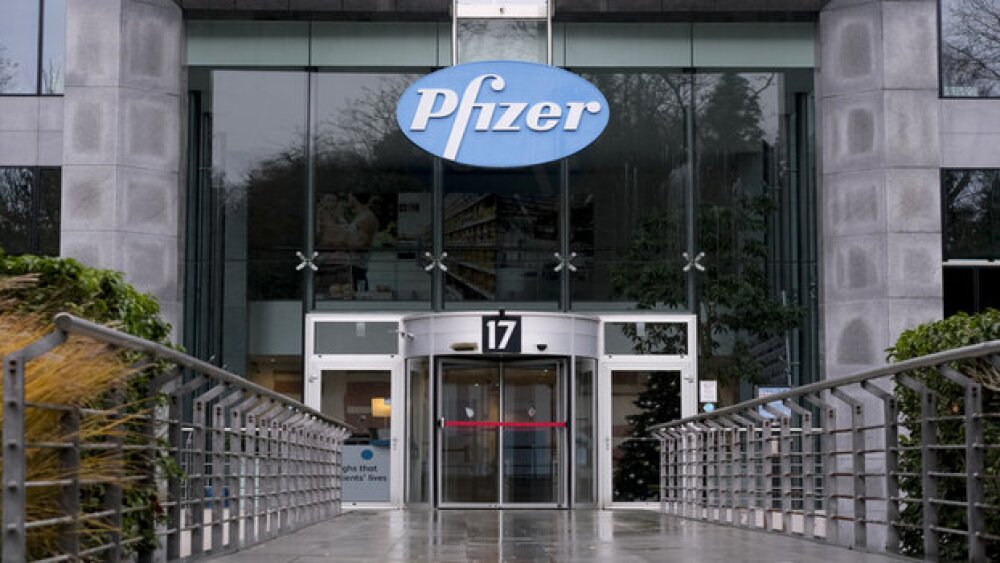With a PDUFA date in the second quarter of 2024, Pfizer is poised to compete with CSL Behring, whose Hemgenix became the first FDA-approved gene therapy for hemophilia B in November 2022.
Pictured: Pfizer’s office in Brussels, Belgium/iStock, Alexandros Michailidis
Health Canada on Wednesday approved Pfizer’s gene therapy fidanacogene elaparvovec, now to carry the brand name Beqvez, for the treatment of adults with hemophilia B.
Beqvez is an adeno-associated virus-based gene therapy that delivers a functioning and high-activity copy of the human coagulation FIX gene, which is mutated in patients with hemophilia B. Designed to be a one-time treatment, Beqvez enables patients to produce the FIX protein themselves and eliminate the need for regular FIX infusions.
The gene therapy is not yet approved in the U.S. The FDA accepted Pfizer’s Biologics License Application in June 2023 and has set a PDUFA goal date in the second quarter of 2024.
Beqvez’s approval in Canada—as well as its pending regulatory applications in the U.S. and Europe—is backed by data from the Phase III BENEGENE-2 study, which assessed the therapy’s effects on annualized bleeding rate (ABR) versus prophylactic FIX, as part of a standard usual-care regimen. In December 2022, the pharma posted positive data from BENEGENE-2, demonstrating that the gene therapy cut ABR by 71% and reduced annualized infusion rate by 92%.
The treatment was also generally safe, inducing no deaths or thrombotic events. Fourteen serious adverse events were documented in BENEGENE-2, two of which were deemed related to the gene therapy.
Wednesday’s approval in Canada—and looming regulatory decision in the U.S.—brings Pfizer in direct competition with CLS Behring, whose own gene therapy Hemgenix (etranacogene dezaparvovec-drlb) became the first FDA-approved hemophilia B gene therapy in the U.S. in November 2022.
A Pfizer spokesperson in a statement to Endpoints News said that the company is still in its pre-launch stage for Beqvez and declined to provide specific pricing details.
However, Hemgenix is among the world’s most expensive treatments, priced at $3.5 million per dose, according to independent drug information platform Drugs.com.
In November 2022, the Institute for Clinical and Economic Review released an evidence report indicating that Hemgenix would be cost-effective at a list price of $2.93 million to $2.96 million. The figures take into account the therapy’s efficacy and safety profile, as well as existing uncertainties about the duration of its benefits and potential rare side effects.
Hemgenix was originally developed by uniQure, which entered into a global commercialization agreement with CSL in June 2020 for $450 million upfront. Similarly, Pfizer obtained Beqvez from Spark Therapeutics in December 2014 for $20 million upfront.
Tristan Manalac is an independent science writer based in Metro Manila, Philippines. He can be reached at tristan@tristanmanalac.com or tristan.manalac@biospace.com.






